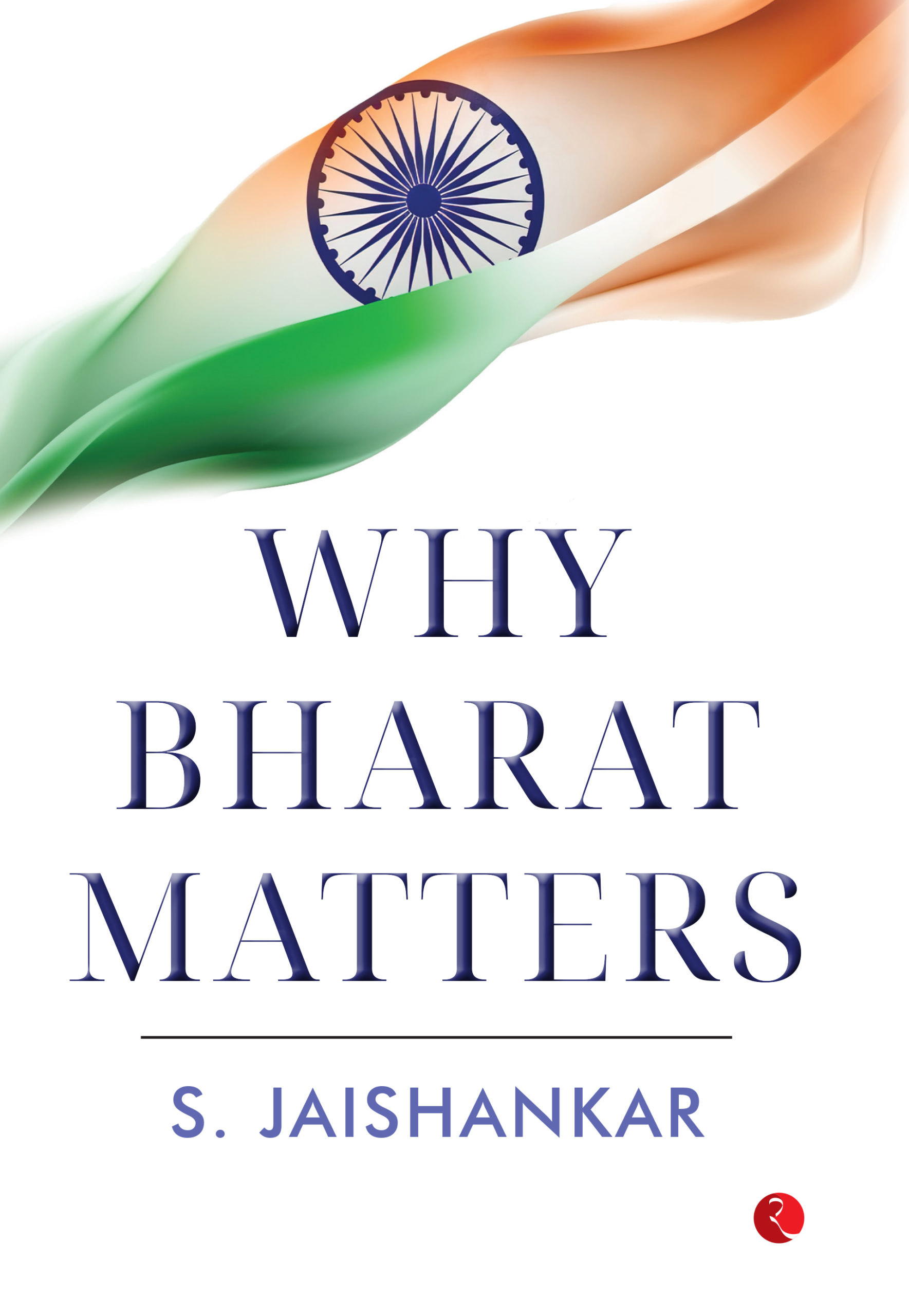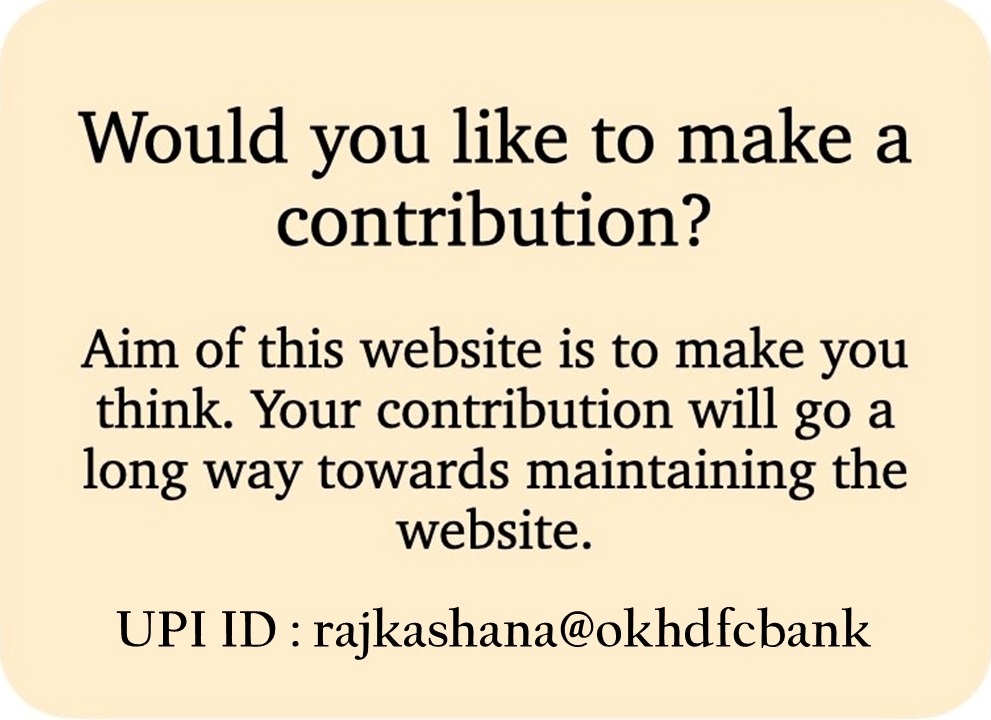When I was studying at the Physics Department of University of Pune (now Savitribai Phule Pune University), the senior most scientist there was Prof. V. G. Bhide, famous for his research work in Mössbauer spectroscopy. Prof. Bhide was widely respected and admired, and he shared his wisdom freely amongst colleagues and more importantly, with students.
I still remember one of his lectures where he emphasised the importance of ‘clarity of thinking.’ I did not realise it at the time but since then I have grown to appreciate just how crucial it is to have clear thoughts. It’s an essential skill that is often overlooked in favour of others.
The quality that struck me the most while reading Why Bharat Matters by Dr. S. Jaishankar Ji was the clarity of thoughts behind every aspect of India’s foreign policy. Foreign policy is a complicated subject by any means and it is a rare delight to find a text that explains its nuances in a lucid manner. Dr. Jaishankar Ji is the ideal person to undertake such an intricate task. He has a Ph. D. in international relations and five decades of vast experience as a diplomat, Ambassador, Foreign Secretary, and now the External Affairs Minister (EAM).
Many Indians, myself included, have noticed a definite shift in India’s foreign policy in the last decade. Dr. Jaishankar Ji explains this shift in the preface of the book, much of which emenated from the personal views and thoughts of Prime Minister (PM) Narendra Modi Ji. In 2014, Dr. Jaishankar Ji was Ambassador in Washington, D. C. when the event at the Madison Square Garden to welcome PM Modi Ji was organised. Dr. Jaishankar Ji was essentially told that the gathering must be organised in New York in such a way that its reverbations would first reach Washington, D. C., and then be a message across the world. Since then this has become a signature aspect of Modi diplomacy so much so that leaders of the democratic world are often keen to participate. This highlights another change of approach, that of motivating and recognising the Indian diaspora all over the world that is so vital to India’s welfare. Equally important has been the right chemistry that PM Modi Ji has been able to establish with his peers, with the relationships emerging from exchange of experiences and respect for achievements.
Western leaders, politicians and diplomats often mention their sources of inspiration ranging from Roman philosophers to the protestant work ethic. Dr. Jaishankar Ji invokes a unique source: the epic Ramayana. One would expect the other Indian epic, the Mahabharata to be more in line with this subject but as Dr. Jaishankar Ji explains at length, there is much to learn from Ramayana about ethics and ethical dilemmas that one confronts on almost day-to-day basis in international diplomacy. The tale of Lord Rama is full of teachings and lessons that are applicable in these modern times.
There are so many quotable quotes in the book that if I were to list them all, I fear I may end up reproducing most of the book. One of my favourites is this one.
The truth is that two centuries of colonialism had skewed the global discourse so drastically in favour of the West that the heritage, culture and traditions of the rest of the world were relegated to the sidelines.
For the first time since its independence, India is proactive on the global front and Dr. Jaishankar Ji cites numerous examples of this throughout the book. For instance, the Vaccine Maitri initiative where India provided vaccines for many small countries who were otherwise forgotten in the pandemic. It also supplied medicines or equipment to 150 countries and deployed Indian personnel in the Maldives, Mauritius, Madagascar, Seychelles, Comoros and Kuwait.
To date, India has done about 200 projects in Africa, including the Tema-Mpakadan Railway and Presidential Palace in Ghana, National Assembly building in Gambia, the Rivatex textile factory in Kenya, the Metro Express project in Mauritius and the Mahatma Gandhi International Convention Centre in Niger. And the first campus of the Indian Institute of Technology Madras (IITM) has been set up in Zanzibar, Tanzania with Prof. Preeti Aghalayam appointed as the first ever woman director of an IIT.
I must mention here that reading these lists was a moving experience for me. India’s treasury was practically empty when the British left in 1947 and it has been a long and arduous journey since then. To reach to a point of prosperity where India can help out other countries is a whole new experience that is quite heartwarming.
If the road so far was difficult, the journey ahead is not easy either. As Dr. Jaishankar Ji says, “Swimming upstream is the karma of all rising powers.”
The Russia-Ukraine war was one of the crucial tests for Indian diplomacy. As the world watched in disbelief, Europe purchased enormous quantities of gas from Russia to keep its citizens safe while at the same time, the westen press questioned India about its oil purchase from Russia. It was a testament as to how deeply ingrained the western beliefs are in such matters that Dr. Jaishankar Ji had to publicly point out this double standard in many a press conferences.
So what is the reason behind this assertive and confident new India, that is able to choose its own path without giving in to external pressures? Economic prosperity and young, knowledgeable demographic are some of the key factors. However, Dr. Jaishankar Ji provides the central reason.
If India’s diplomacy appears nimble and creative now, much of the credit should go to a leader who has consciously striven to make it more contemporary and responsive.
Indeed, the list of Indian collaborations keeps growing. There’s I2U2 (India, Israel, the United Arab Emirates, the United States of America), IBSA (India, Brazil, South Africa), and the Quad (India, United States of America, Japan, Australia), to name a few.
India has moved out of the defensive non-aligned posture and is engaging multiple nations on a range of issues. The recently concluded G20 summit was another great example. At India’s initiative, the African Union (AU) was included in the G20 and the difficult task of achieving consensus was successfully accomplished.
These initiatives have given rise to an informal group now popularly known as the Global South. Smaller nations in this group look up to India for help in times of need and also as a partner who would convey their concerns at global platforms such as the G20.
Regions and nations that were long neglected at the leadership level have been intensively engaged. Countries in the Gulf like the UAE got a prime ministerial visit after a gap of three decades and Baharin the first ever in 2019. And a key partner like Australia had to wait for 28 years for the same!
These are but a few highlights of the great strides India has made in the last decade. For a comprehensive picture of India’s foreign policy and its future, you need to read the book.
Zooming out, the tremendous progress India has made in many other areas in the last decade is truly breathtaking. Country’s automobile sector has moved up in world rankings from number seven to number three, overtaking Japan. Total length of highways have increased by 60 percent to 1,46,145 km in last 10 years.
Of all the major economies, India has hadled its economy in the best possible manner in the post-Covid era, as evidenced by the fact that it is the fastest growing economy in the world. With the utilisation of Digital Public Infrastructure (DPI), India has achieved a staggering 80% bank account penetration. The long neglected manufacturing sector is thriving again with the Make in India initiative.
Simultaneous progress in so many areas is possible only because of the leadership with a clear vision of the future. While inaugurating the Bharat Mandapam in 2023, PM Modi Ji made a public appeal to think for an entire era, not just a term in office. This was characterised as the Amrit Kaal, a quarter century with its goal as India’s emergence as a developed nation.
I look forward to this journey with great enthusiasm.



